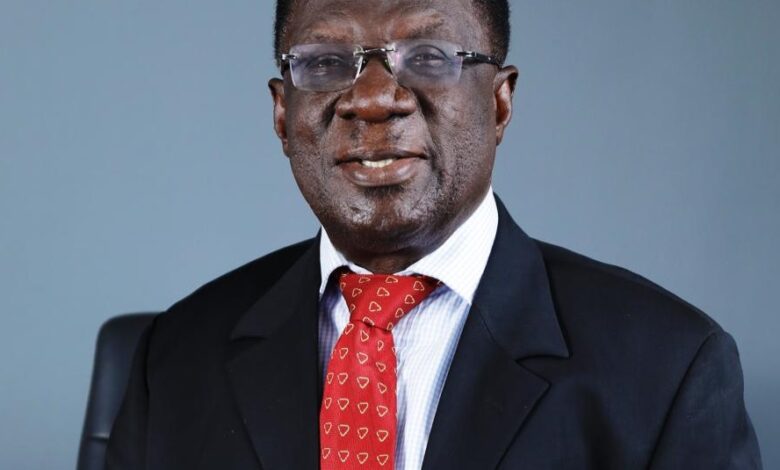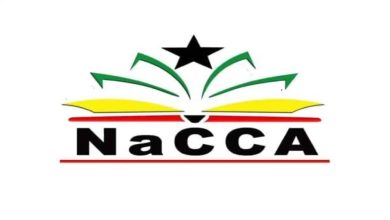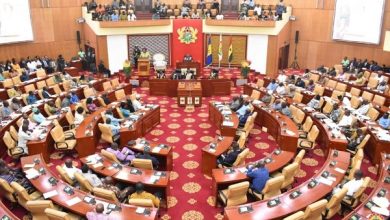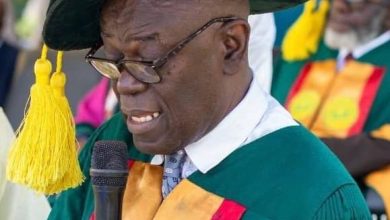Cleansing academic degrees and titles landscape: A painful but necessary exercise – Prof. Ameyaw-Akumfi

The Ghana Tertiary Education Commission (GTEC) has in recent times taken bold steps to revoke questionable academic degrees and titles held by some individuals, a move that has sparked widespread debate. Former Minister of Education, Professor Christopher Ameyaw-Akumfi, has described the exercise as a painful but necessary step to sanitize Ghana’s academic space.
According to him, the misuse of academic titles, particularly doctorate and professorial designations, has become increasingly problematic. He cautioned that institutions and professional bodies must thoroughly scrutinize the credentials of individuals who present such qualifications in order to safeguard the integrity of academia.
“Private consultations have not been enough to address this issue. That is why the intervention by GTEC has become so crucial,” Prof. Ameyaw-Akumfi emphasized.
On Honorary Doctorate Degrees
He noted that universities worldwide award honorary doctorate degrees (honoris causa) as a mark of recognition for outstanding contributions in various fields. However, the growing abuse of such titles, he said, has blurred the lines between earned and honorary doctorates.
“The society is filled with numerous honorary degree holders, and it is almost impossible to make a distinction between earned doctorates and honorary ones,” he explained.
Citing Ethiopia as an example, Prof. Ameyaw-Akumfi revealed that the country’s Ministry of Education has banned the use of honorary doctorate titles altogether. He suggested that Ghanaian institutions should adopt more sustainable ways of honouring distinguished individuals—such as naming structures, lectures, and prizes after them—rather than conferring honorary doctorates that create confusion.
Impact on the Younger Generation
He also expressed concern about the misleading influence such practices could have on younger generations. “One danger in carrying an honorary doctorate title is when children in your family aspire to pursue academia. They may one day question the source of your PhD, only to be left with vague explanations,” he cautioned.
Prof. Ameyaw-Akumfi commended Ghana’s past Heads of State for resisting the use of honorary doctorate titles, urging public figures to emulate their example.
On Professorial Titles
Touching on professorial designations, the former Minister observed that the distinction between Associate Professors and full Professors has become less clear, contributing to the misuse of the title “Professor.”
“It is not surprising today to find magicians, radio presenters—even my own son—herbalists and others relishing the use of this academic title,” he said. He stressed the need for close scrutiny of academic CVs to ensure that professorial ranks are properly earned.
Call for Self-Regulation
Prof. Ameyaw-Akumfi urged individuals to exercise self-restraint in adopting academic titles they have not legitimately acquired. He argued that the public image enhancement such titles provide is often unnecessary, especially for politicians and public servants.
“In some jurisdictions, academic titles are not used by politicians. The preferred title, Honourable, is itself a very special recognition,” he added.
The former Minister concluded by urging Ghanaian society to protect the sanctity of academic achievement and allow legitimate scholarship to be distinguished from honorary recognition.
Author:
Professor Christopher Ameyaw-Akumfi
- Former Minister of Education, Republic of Ghana
- Former Director-General of Education
- Former Pro Vice-Chancellor, University of Cape Coast
Read the full statement below
CLEANSING ACADEMIC DEGREES AND TITLES LANDSCAPE:
Painful Exercise by GTEC
In recent times, the Ghana Tertiary Education Commission has had to revoke academic degrees and titles carried by some individuals. It is very imperative to carefully scrutinize the Curriculum Vitae (CV) of such individuals by bodies that chance on them and advise the bearers accordingly. The trouble is that private consultations do not resolve the issues. Hence, the intervention by GTEC.
Let’s look at Doctorate degrees and Professorship titles. Universities the world over, offer Honorary Doctorate degrees( Honorary Causae). This is done in recognition of the individual’s contribution to the development in various fields of endeavour identified by a search party and approved by the institution. This is the perogative of the institution as set out in its statutes. An individual may have one, two, or three degrees and ascribes to himself/herself, the title, Dr. Dr. Dr. Whether one, two, or three doctorate degrees, this leads to enormous confusion. The society is filled with numerous honorary degree holders, and it is impossible to make a distinction between the two (earned Doctorate and Honorary Doctorate). These days, it is not easy to identify the source of the honorary degree. Do not get me wrong. You may decide to call yourself a doctor, but you should present your sources of award when requested.
The Ethiopian Ministry of Education recently banned the use of honorary doctorate titles. My candid opinion is that academic institutions should devise more ingenious ways of honouring individuals who would normally be awarded honorary degrees. Institutions could name structures, lectures, prizes, etc. after them; These landmarks and ceremonies remain in perpetuity.
There is one danger in carrying the title in a family of young ones who have aspirations to go into academia. These youngsters will one day ask the source of your PhD title and would obtain a cascading tale without concrete answers. I commend our past Heads of State for avoiding the use of Honorary Doctorate titles. Let’s emulate them.
The other area of concern is Professorial titles. Years ago, the distinction between Associate Professor and a Professor was not latent. The Associate Professor always aspired to reach the pinnacle. But here we are, both titles are merged as equals in public. It is not surprising that magicians, radio presenters (one of whom is my son), herbalists etc etc, relish the use of the title. Again, in CV’s, close scrutiny is necessary to ascertain the authenticity of titles and degrees as properly earned or otherwise.
More importantly, in order not to confuse the use of these titles, individuals may advise themselves to avoid their use if they have not acquired them properly. They may also have to ask themselves if the enhancement they seek in their public image is really necessary at all.. In some jurisdictions, academic titles are not used by politicians. The preferred title, lHONOURABLE, is a very special title.
Autor: Professor
Christopher Ameyaw-Akumfi, Forner Minister of Education, Republic of Ghana.
In recent times, the Ghana Tertiary Education Commission has had to revoke academic degrees and titles carried by some individuals. It is very imperative to carefully scrutinize the Curriculum Vitae (CV) of such individuals by bodies that chance on them and advise the bearers accordingly. The trouble is that private consultations do not resolve the issues. Hence, the intervention by GTEC.
Let’s look at Doctorate degrees and Professorship titles. Universities the world over, offer Honorary Doctorate degrees( Honorary Causae). This is done in recognition of the individual’s contribution to the development in various fields of endeavour identified by a search party and approved by the institution. This is the perogative of the institution as set out in its statutes. An individual may have one, two, or three degrees and ascribes to himself/herself, the title, Dr. Dr. Dr. Whether one, two, or three doctorate degrees, this leads to enormous confusion. The society is filled with numerous honorary degree holders, and it is impossible to make a distinction between the two (earned Doctorate and Honorary Doctorate). These days, it is not easy to identify the source of the honorary degree. Do not get me wrong. You may decide to call yourself a doctor, but you should present your sources of award when requested.
The Ethiopian Ministry of Education recently banned the use of honorary doctorate titles. My candid opinion is that academic institutions should devise more ingenious ways of honouring individuals who would normally be awarded honorary degrees. Institutions could name structures, lectures, prizes, etc. after them; These landmarks and ceremonies remain in perpetuity.
There is one danger in carrying the title in a family of young ones who have aspirations to go into academia. These youngsters will one day ask the source of your PhD title and would obtain a cascading tale without concrete answers. I commend our past Heads of State for avoiding the use of Honorary Doctorate titles. Let’s emulate them.
The other area of concern is Professorial titles. Years ago, the distinction between Associate Professor and a Professor was not latent. The Associate Professor always aspired to reach the pinnacle. But here we are, both titles are merged as equals in public. It is not surprising that magicians, radio presenters (one of whom is my son), herbalists etc etc, relish the use of the title. Again, in CV’s, close scrutiny is necessary to ascertain the authenticity of titles and degrees as properly earned or otherwise.
More importantly, in order not to confuse the use of these titles, individuals may advise themselves to avoid their use if they have not acquired them properly. They may also have to ask themselves if the enhancement they seek in their public image is really necessary at all.. In some jurisdictions, academic titles are not used by politicians. The preferred title, HONOURABLE, is a very special title.
Autor: Professor
Christopher Ameyaw-Akumfi, Forner Minister of Education, Republic of Ghana.
Former Director General of Education
Former Pro Vice Chancellor, University of Cape Coast.




